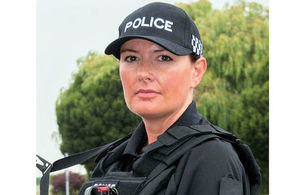Artist’s impression of a Galileo satellite. Credit: ESA–J. Huart, 2014.
The SatelLife Challenge, now in its second year, is looking for innovative proposals from those aged 11 to 22 which have the potential to use data collected from space to benefit our economy, health or the environment. Ideas from last year’s competition ranged from solutions to help increase the survival rate of heart attack victims by using GPS trackers in fitness devices, to an app that warns people about impending natural disasters, guides them safely away and alerts emergency services.
Satellites support the economy and everyday life, and this competition gives young people the chance to test their ideas with industry experts and perhaps one day become part of the fastest growing sector of the UK economy. The UK space industry builds 40% of the world’s small satellites and 25% of the world’s telecommunications satellites. It supports 40,000 jobs and generates £14 billion in revenue across the country.
Science minister Jo Johnson said:
“Satellites are shaping our society and increasingly important for our economy. Every second they send information around the world, keep shipping lanes and flightpaths clear and help us get to where we want to be.
“Young people today will be an integral part of our mission to grow the UK’s share of the global space market to 10% by 2030, as set out in our industrial strategy. We need to ensure the potential benefits of space are felt across the whole economy and encourage young British entrepreneurs to develop ideas that rival the best in the world.”
The overall winner in 2017 was James Pearson from Lincolnshire, who came up with an app to provide information on coastal flood risks, went on to meet British ESA astronaut Tim Peake and is using his prize money to develop his idea.
James Pearson, 14, said:
“The competition was absolutely amazing for me. It has opened my eyes to the opportunities that are around us. I have really had to push myself to learn new things. The highlights included meeting Tim Peake but also the industry experts. So far I have continued to get my website operational, I’ve been scanning the satellites for more images and I’ve increased my computing power. I will continue to work hard until the website is complete. I have really enjoyed this competition as it has developed my confidence, I was thrilled to win and just to learn about the space industry and technology.”
The competition, which aims to support the development of science, data handling and technological skills, is split into three age groups, with overall prizes of £7,500 for the best individual and best team. A further seven entries from across the age categories will win £5,000, making a total prize fund of £50,000. The judging panel will be made up of experts including representatives from the UK Space Agency, the European Space Agency, the Satellite Applications Catapult in Harwell and industry.
Adina Gillespie, Head of Applications for Earth Observation and Science, at Surrey Satellite Technology Ltd (SSTL), one of the expert judges, said:
“The SatelLife competition is a great initiative to encourage young people to think about satellite applications and consider future careers in the space industry – and we have a lot of fun along the way.”
Entries can be as teams or individuals and all prize winners will be able to pitch their idea to a panel of ‘dragons’ from the space sector who will offer prizes. In 2017 the competition winners were offered a mix of support including an offer to build a prototype, thousands of pounds worth of space on Amazon Cloud Services, access to data, business development advice and a visit to a satellite factory.
The competition closes on 25th February. Visit the SatelLife Challenge entry page for more information.
